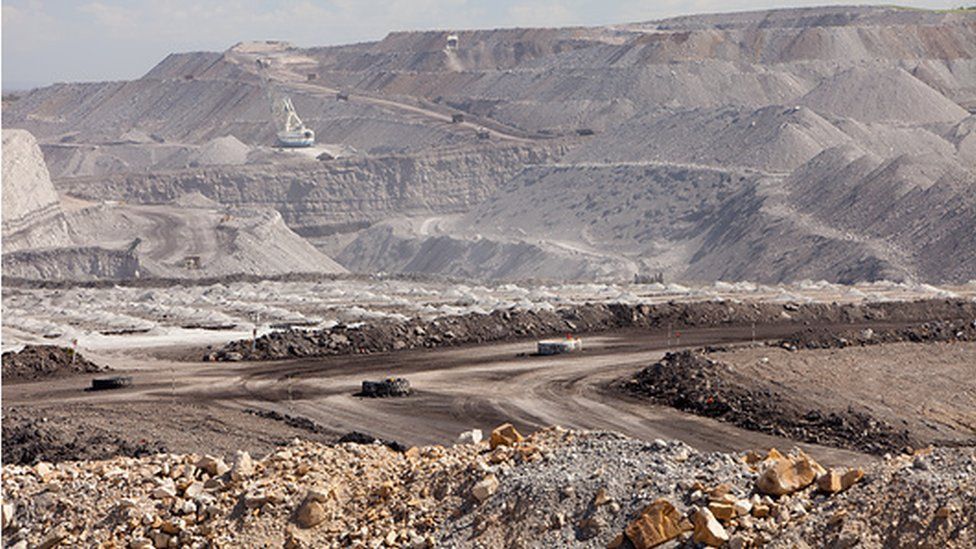Pressure grows for price on carbon ahead of UN signing
- Published

A group of world leaders and international finance chiefs has urged the world to rapidly expand the pricing of carbon pollution.
They argue that more than half of emissions of CO2 should be covered by a carbon price within a decade.
India has also called on rich countries to put a tax on coal to help poorer nations adapt to climate change.
These calls came ahead of a UN ceremony where some 155 countries are expected to sign the Paris Climate Agreement.
Putting an effective price on carbon has long been the favourite method of most economists in dealing with climate change.
In 2006 Sir Nicholas Stern's landmark review of the costs of climate change found that establishing a carbon price was essential to dealing effectively with the problem.
Cap, trade or tax
Since then attempts have been made, with mixed success. These have included cap and trade schemes in many parts of the world, where a limit on emissions is established by governments and permits are issued to heavy carbon users. If they cut back on their emissions they can trade the permits on the market.
Schemes like this have been criticised for being too generous to polluters, often issuing them with free permits. The European Union's flagship Emissions Trading Scheme almost collapsed because of this practice in recent years.
Other countries have adopted a more straightforward carbon tax as a means of getting polluters to cut back.
So far around 12% of the world's emissions are covered by such schemes. This new coalition of political leaders and financiers says that has to improve significantly if the world is to keep global temperature rises below 2 degrees.
The group includes the Prime Ministers of Canada and Ethiopia, the Presidents of Chile, France and Mexico, the Chancellor of Germany and the head of the IMF and World Bank.
They believe that the world can achieve 25% of emissions covered by carbon pricing by 2020 while half the world's output could be covered by 2025.
"There is a growing sense of inevitability about putting a price on carbon pollution," said World Bank President Jim Yong Kim in a statement.
"Prices for producing renewable energy are falling fast, and putting a price on carbon has the potential to make them even cheaper than fuels that pollute our planet."
Without giving too many details, the leaders believe that carbon pricing can be expanded in three ways - by increasing the number of governments putting a price on carbon, by deepening existing carbon pricing programs, and by promoting global cooperation.
"We should now follow up the Paris Agreement with adequate actions, national policies, investment schemes and regional and international initiatives and partnerships, said Ethiopia's Prime Minister Dessalegn.
"I iterate Ethiopia's commitment to the global efforts to overcome dangerous climate change and ensure sustainable development. We will use every policy instrument, including carbon pricing, which is found to be effective, efficient and fair."
Global coal tax?
India was also keen to promote the idea of carbon pricing before the UN signing ceremony here in New York . They are promoting the idea of a tax on coal.
The country recently increased its tax on mined coal to $6 a tonne, a significant increase from $1. India's environment minister Prakasj Javadekar believes the world, especially the wealthier countries, should now follow suit.
"If they follow India and levy a tax of $5-$6 a tonne on coal production, $100 billion can easily be mobilised," he said, speaking to news agencies.
Mr Javadekar said this would be a highly effective way of funding climate adaption in poor countries around the world while incentivising a transition to greener energy sources.
Follow Matt on Twitter @MattMcGrathBBC.
- Published22 April 2016